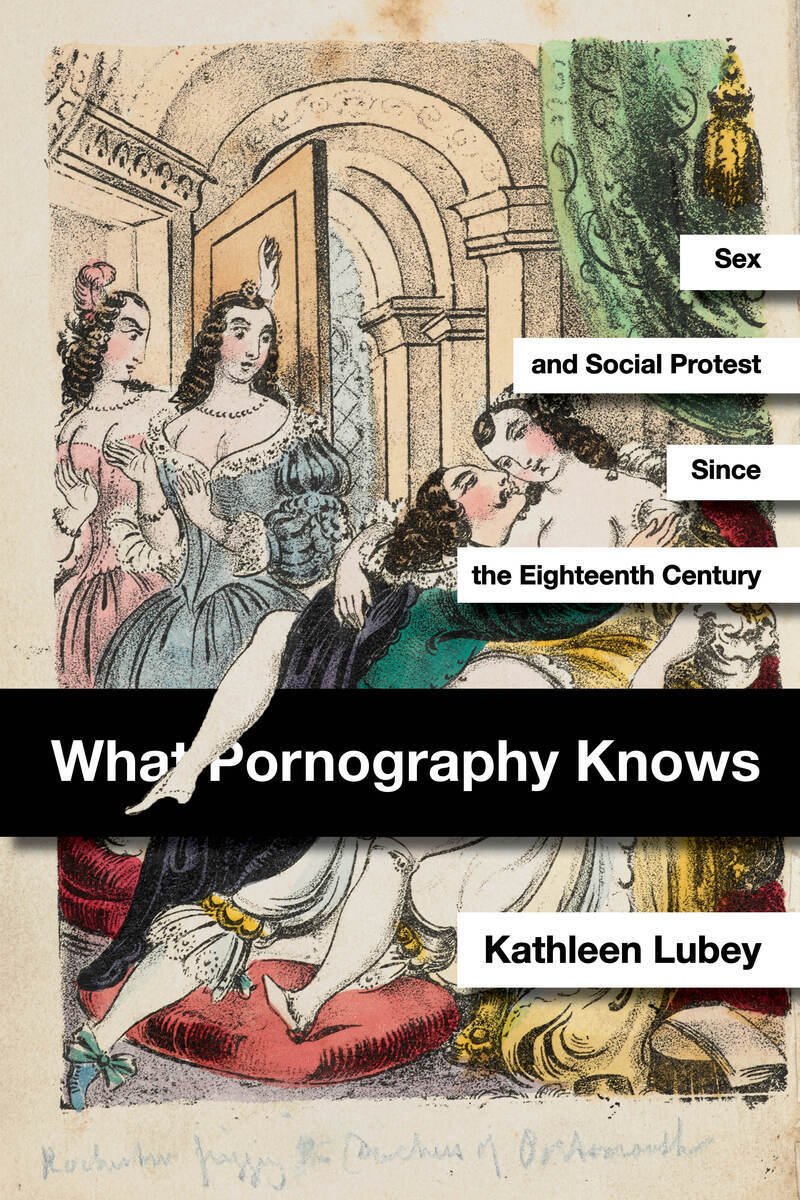"What if pornography built the body as we know it and can also help dismantle it? In What Pornography Knows, Kathleen Lubey tracks texts like a detective across centuries as they hide on secret library shelves, analyzes them with verve, and shows us, brilliantly, how pornography doesn't just celebrate endless sex but in fact constructed sex as we know it, and with more ambivalence than we'd realized. A masterful rethinking of the history of pornography."
—Whitney Strub, author of Perversion for Profit: The Politics of Pornography and the Rise of the New Right
"Kathleen Lubey's dazzling study makes available an astounding new history of pornographic narrative––or, rather, of pornographic dilation, since 'narrative' is among the categories of representation we will have to rethink in response to this landmark study, along with 'knowledge,' 'embodiment,' and 'sexuality.' This book will make a lasting impact in a number of scholarly fields––and it is sorely needed: a non-phobic, but characteristically skeptical, treatment of a pornography as a far more complex genre than hitherto perceived."
—Grace Lavery, author of Please Miss: A Heartbreaking Work of Staggering Penis
"With analysis that is nothing short of astonishing, Lubey offers a dramatic, eloquent cultural history of pornography with an ingenious throughline in a single much-transformed text. What Pornography Knows offers significant new information about literary fields from the eighteenth century to the present and makes available new insights about the social hierarchies in which they participated."
—Frances Ferguson, University of Chicago, author of Pornography, The Theory: What Utilitarianism Did To Action
“Kathleen Lubey, in this provocative and. . . exciting study, attempts to explain the erotics of reading through the century following 1660. If there were a period of English literature in which erotics would offer the most appropriate ground for a study, this would surely be it. Lubey uses philosophical and proto-psychological material as an entrée into her topic, and at times she outlines key features of the reading experience that allow her to generalize about responses to a range of writing from Pepys and John Cleland to works in other genres by authors/artists such as William Hogarth. ... Excitable Imaginations is a great book.”
— George Haggerty, Eighteenth-Century Fiction
”Excitable Imaginations gave me new ways of seeing many of the images and texts that I draw upon in my history course on seventeenth- and eighteenth-century sexualities. I highly recommend it.”
— Marilyn Morris, Journal of the History of Sexuality

